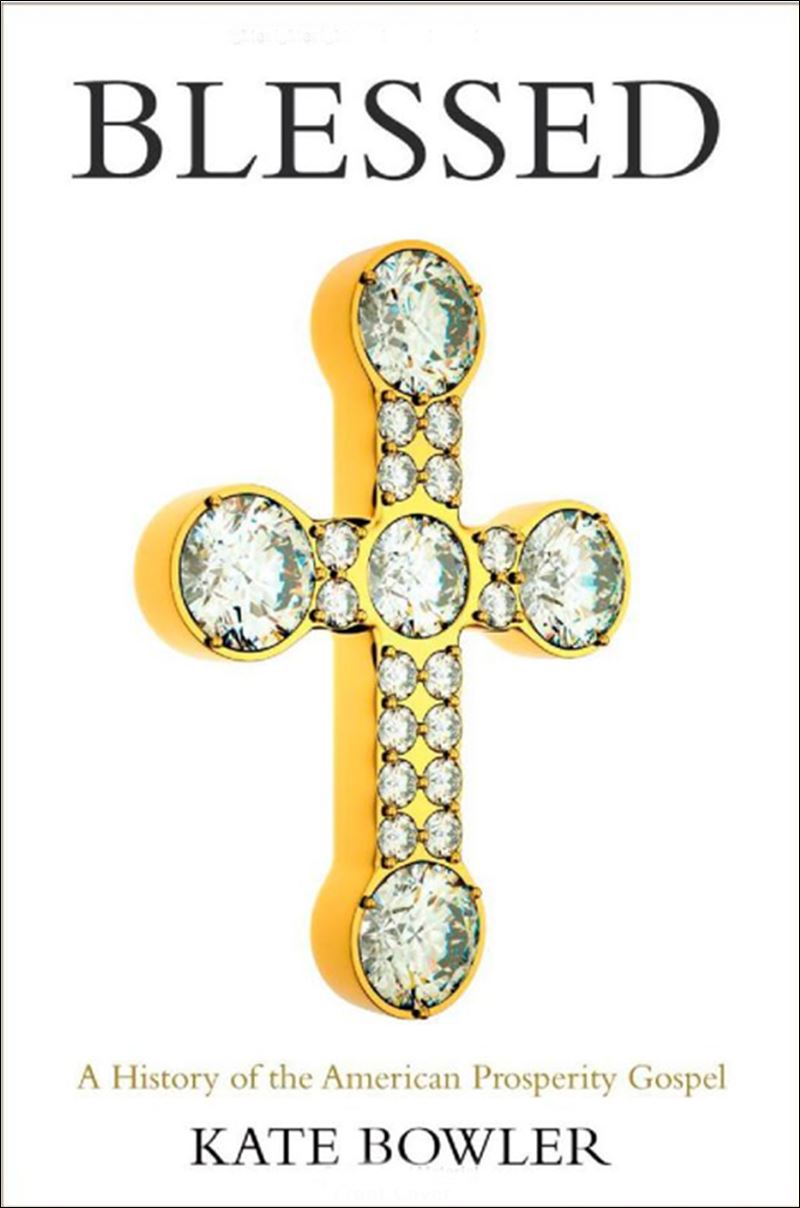For those of us who are children of the 1980s, mention of the Prosperity Gospel conjures up images of fallen televangelists like Jimmy Swaggart and Jim Bakker or Protestant outlanders such as Benny Hinn. But in recent years, more marketable versions of health and wealth Christianity have been mainstreamed by preachers from Joyce Meyer to Joel Osteen.
Among scholars of American religious history, the Prosperity Gospel has rarely been taken seriously as a movement worthy of legitimate scholarly attention. Enter Duke Divinity School’s Kate Bowler.
Bowler, who grew up among Mennonites in Canada, has published what may be the definitive history of this multilayered movement. Blessed: A History of the American Prosperity Gospel (Oxford University Press) has  come out this past year and was the focus of the recent Spring Seminar in American Religious History at Notre Dame’s Cushwa Center. The book is a fascinating read and chance for those of us who remember the antics of Swaggart and Bakker to put these antiheros within a larger context of American religious history. Bowler roots her analysis in the 19th century with the rise of New Thought, Mind Cure, and religious figures such as Mary Baker Eddy. The history of the Prosperity Gospel may include the stereotypical low-brow religion, greedy charlatans, and oily preachers with get-rich-quick schemes (as commenter David Ruccio made clear). But perhaps amid this, Bowler argues, the Prosperity Gospel might also represent a religious version of the American dream that connects with the yearning for wholeness, well-being, and American notions of financial success.
come out this past year and was the focus of the recent Spring Seminar in American Religious History at Notre Dame’s Cushwa Center. The book is a fascinating read and chance for those of us who remember the antics of Swaggart and Bakker to put these antiheros within a larger context of American religious history. Bowler roots her analysis in the 19th century with the rise of New Thought, Mind Cure, and religious figures such as Mary Baker Eddy. The history of the Prosperity Gospel may include the stereotypical low-brow religion, greedy charlatans, and oily preachers with get-rich-quick schemes (as commenter David Ruccio made clear). But perhaps amid this, Bowler argues, the Prosperity Gospel might also represent a religious version of the American dream that connects with the yearning for wholeness, well-being, and American notions of financial success.
Just last night, Bowler’s book became a nice point of connection with historian friends Jeff Webb (Huntington University) and David Schuster (IPFW). Gathering for what we call the Fort Wayne Seminar in American History, Shuster presented part of a larger article he is working on, which focuses on the religious roots of Psycho-analysis. Shuster’s work is as fascinating as Bowler’s and coincidentally, also points to the importance of Mary Baker Eddy and Christian Science as well as related Mind Cure practices. Freud’s theories about the mind’s power to shape the human psyche by way of childhood experiences and repressed memories could be viewed, Shuster argued, as a secularized version of earlier efforts to realize psychological well-being that captured the attention of theorists like Eddy. While I look forward to seeing Shuster’s work in print, take a minute to give Bowler’s work on the Prosperity Gospel a look!